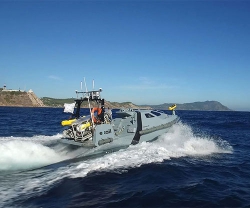Five of the six GCC members - Saudi Arabia, Bahrain, the United Arab Emirates (UAE), Qatar and Kuwait - rely on the world's most important energy shipping lane being open to export most of their oil or gas.
Tehran has threatened to close the narrow shipping lane between Oman, the only GCC member which does not depend on Hormuz, and Iran if Western sanctions aimed at starving Iran's disputed nuclear program of funds stop it from selling oil.
The GCC members, which also rely on the four-mile-wide (6.4km) channel being open to import food for their growing populations, has now drawn up a contingency plan in case Iran acts on its threats.
“Exporting oil or importing goods and cargo through Hormuz is a main concern for the GCC,” Commander Mubarak Ali Al-Sabah Chief of Maritime Operations at Kuwait's Coast Guard told Reuters.
“The GCC has a plan as a body - not just Kuwait separately or Bahrain or Saudi Arabia - we have a plan we just hope that everything stays safe,” Al-Sabah said, without giving details of the plans.
“Awareness and understanding of the consequences of it has increased. We have plans how to deal with this but didn't do field exercises on it,” he added.
Al-Sabah said the planning included coordinating both between Coastguards and Navies of GCC countries and with Western Naval Forces patrolling the area -- including US, Australian and French Navies.
Kuwaiti and Iranian Coastguards hold regular meetings on how to manage their shared maritime border, with the next one scheduled for next month.
“We don't go into politics or speak about other issues just what concerns the coastguards and how we can work it out,” he said.
Oil tanker flows through the Strait of Hormuz are estimated at around 16 million barrels per day (bpd), or just under a fifth of global oil supplies. A new pipeline from the UAE's oilfields to the Gulf of Oman could carry most of the OPEC oil producer's exports if Hormuz were to be blocked.
But even a brief disruption to shipping could stop most of the oil exported from Saudi Arabia, Iran, Kuwait and Iraq from leaving the Gulf, along with liquefied natural gas (LNG) from leading supplier Qatar.
Source: Reuters






















